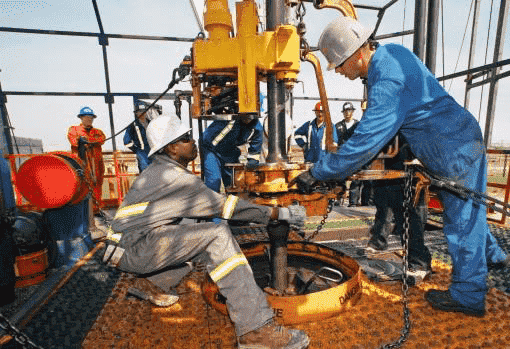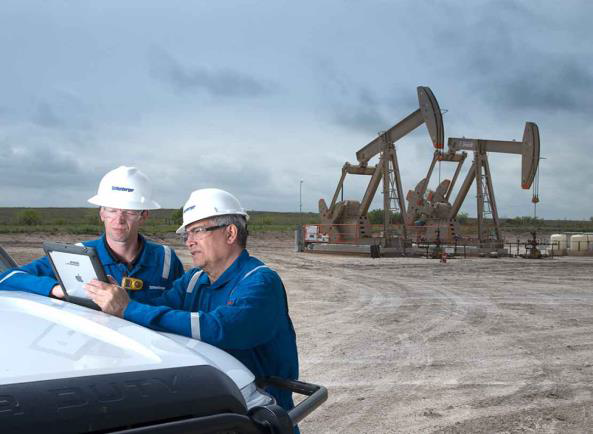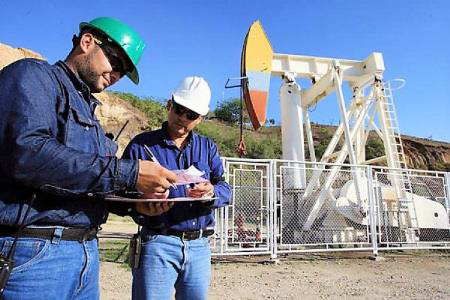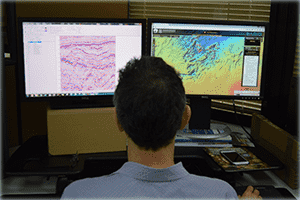COURSE OVERVIEW
DE0831 : Drilling and Workover Operations

OVERVIEW
| COURSE TITLE | : | DE0831 : Drilling and Workover Operations |
| COURSE DATE | : | Mar 03 - Mar 07 2024 |
| DURATION | : | 5 Days |
| INSTRUCTOR | : | Dr. Abla Rhouma |
| VENUE | : | Istanbul, Turkey |
| COURSE FEE | : | $ 8500 |
| Request For Course | ||
Course Description
This practical and highly-interactive course includes real-life case studies and exercises where participants will be engaged in a series of interactive small groups and class workshops. The profitability of a well as an investment venture depends on how long it is on stream and how much it produces. Its lifetime and output are naturally due to the reservoir?s initial characteristics. However, they are also dependent on keeping the well maintained in good working order and adapting completion properly to the constantly varying conditions prevailing in the reservoir and around the wellbore. The operations that may have to be carried out on a well are numerous and can be broken down into measurements, maintenance and workover. Working on a well to reclaim or increase oil and gas production is a formidable segment of today?s petroleum industry. This was not always the case, however, and many factors have changed the position of the workover industry from a minor to a major role. Foremost of these factors is that petroleum demand continues to grow, while reserves continue to decline. This difference has to be made up with existing wells, which means reworking off-production wells.During this interactive course, participants will learn the origin of pore pressure; the drilling problems associated with abnormal pressure; the optimization of bit hydraulics, casing design process, single and multiple stage cementing; the trajectory for a directional wells; the directional drilling tools and BHA, directional surveying tools and the main factors influencing completion design; the overall approach to a well?s flow capacity; the major types of completion configurations and the main phases in completion; the cement job, perforating and treating the pay zone; the general configuration of flowing well equipment, the production wellhead, the production string or tubing and packers; the down hole equipment, subsurface safety valves and running procedure; the run procedures, artificial lift process and down hole equipment for smart completion; the main types off well servicing and workover; the servicing & workover special cases; and the carbonate acidizing, sandstone acidizing, scales and paraffin removal and squeeze cementing.
TRAINING METHODOLOGY
This interactive training course includes the following training methodologies:
LecturesWorkshops & Work Presentations
Case Studies & Practical Exercises
Videos, Software & Simulators
In an unlikely event, the course instructor may modify the above training methodology for technical reasons.
VIRTUAL TRAINING (IF APPLICABLE)
If this course is delivered online as a Virtual Training, the following limitations will be applicable:
| Certificates | : | Only soft copy certificates will be issued |
| Training Materials | : | Only soft copy materials will be issued |
| Training Methodology | : | 80% theory, 20% practical |
| Training Program | : | 4 hours per day, from 09:30 to 13:30 |
RELATED COURSES

DE0931 : Advanced Gas Lift Design & Deliquification
- Date: Feb 09 - Feb 13 / 3 Days
- Location: Muscat, Oman
- Course Details Register

DE0377 : Advanced Well Testing & Interpretation
- Date: Feb 09 - Feb 13 / 3 Days
- Location: Doha, Qatar
- Course Details Register

DE0641 : Oil Industry Orientation
- Date: Feb 09 - Feb 13 / 3 Days
- Location: Doha, Qatar
- Course Details Register

DE0053 : Petrel Geological Process Modeling
- Date: Feb 09 - Feb 13 / 3 Days
- Location: Dubai, UAE
- Course Details Register
